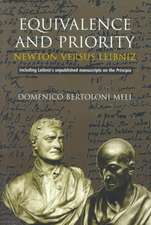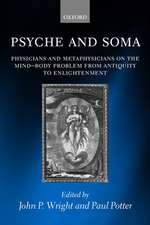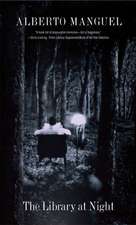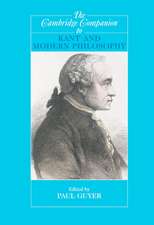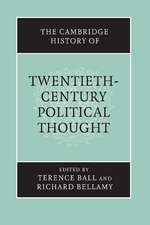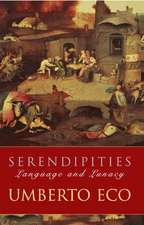Trust in Early Modern International Political Thought, 1598–1713: Ideas in Context, cartea 116
Autor Peter Schröderen Limba Engleză Paperback – 27 noi 2019
| Toate formatele și edițiile | Preț | Express |
|---|---|---|
| Paperback (1) | 285.37 lei 6-8 săpt. | |
| Cambridge University Press – 27 noi 2019 | 285.37 lei 6-8 săpt. | |
| Hardback (1) | 627.28 lei 3-5 săpt. | +23.97 lei 4-10 zile |
| Cambridge University Press – 5 mar 2017 | 627.28 lei 3-5 săpt. | +23.97 lei 4-10 zile |
Din seria Ideas in Context
-
 Preț: 200.64 lei
Preț: 200.64 lei -
 Preț: 200.28 lei
Preț: 200.28 lei - 9%
 Preț: 592.59 lei
Preț: 592.59 lei -
 Preț: 200.38 lei
Preț: 200.38 lei -
 Preț: 200.42 lei
Preț: 200.42 lei -
 Preț: 178.15 lei
Preț: 178.15 lei -
 Preț: 230.08 lei
Preț: 230.08 lei -
 Preț: 240.27 lei
Preț: 240.27 lei - 9%
 Preț: 627.28 lei
Preț: 627.28 lei -
 Preț: 224.34 lei
Preț: 224.34 lei - 11%
 Preț: 695.06 lei
Preț: 695.06 lei - 11%
 Preț: 693.36 lei
Preț: 693.36 lei - 9%
 Preț: 626.79 lei
Preț: 626.79 lei - 9%
 Preț: 626.37 lei
Preț: 626.37 lei -
 Preț: 169.70 lei
Preț: 169.70 lei - 11%
 Preț: 626.38 lei
Preț: 626.38 lei -
 Preț: 246.32 lei
Preț: 246.32 lei - 8%
 Preț: 530.33 lei
Preț: 530.33 lei - 27%
 Preț: 648.35 lei
Preț: 648.35 lei - 9%
 Preț: 592.06 lei
Preț: 592.06 lei -
 Preț: 186.95 lei
Preț: 186.95 lei -
 Preț: 188.70 lei
Preț: 188.70 lei -
 Preț: 192.99 lei
Preț: 192.99 lei -
 Preț: 160.82 lei
Preț: 160.82 lei - 11%
 Preț: 583.02 lei
Preț: 583.02 lei -
 Preț: 200.74 lei
Preț: 200.74 lei - 11%
 Preț: 585.25 lei
Preț: 585.25 lei -
 Preț: 276.77 lei
Preț: 276.77 lei -
 Preț: 185.17 lei
Preț: 185.17 lei -
 Preț: 178.45 lei
Preț: 178.45 lei - 11%
 Preț: 583.56 lei
Preț: 583.56 lei -
 Preț: 179.68 lei
Preț: 179.68 lei - 11%
 Preț: 584.90 lei
Preț: 584.90 lei -
 Preț: 375.56 lei
Preț: 375.56 lei -
 Preț: 284.17 lei
Preț: 284.17 lei -
 Preț: 285.54 lei
Preț: 285.54 lei -
 Preț: 298.92 lei
Preț: 298.92 lei -
 Preț: 282.87 lei
Preț: 282.87 lei -
 Preț: 288.04 lei
Preț: 288.04 lei -
 Preț: 284.56 lei
Preț: 284.56 lei - 14%
 Preț: 757.52 lei
Preț: 757.52 lei
Preț: 285.37 lei
Nou
Puncte Express: 428
Preț estimativ în valută:
54.60€ • 57.02$ • 45.09£
54.60€ • 57.02$ • 45.09£
Carte tipărită la comandă
Livrare economică 15-29 aprilie
Preluare comenzi: 021 569.72.76
Specificații
ISBN-13: 9781316627488
ISBN-10: 1316627489
Pagini: 292
Dimensiuni: 230 x 150 x 15 mm
Greutate: 0.4 kg
Editura: Cambridge University Press
Colecția Cambridge University Press
Seria Ideas in Context
Locul publicării:Cambridge, United Kingdom
ISBN-10: 1316627489
Pagini: 292
Dimensiuni: 230 x 150 x 15 mm
Greutate: 0.4 kg
Editura: Cambridge University Press
Colecția Cambridge University Press
Seria Ideas in Context
Locul publicării:Cambridge, United Kingdom
Cuprins
Preface; Acknowledgements; Introduction; 1. Alberico Gentili (1552–1608): new ways of posing the problem of war and interstate relations; 1.1 Confessional strife and the question of trustworthiness among European states; 1.2 A new concept of the enemy and war: trust among equals; 1.3 Pirates and other enemies hors la loi: the untrustworthy foes; 2. Plans for universal peace in Europe: the limits of a balance of power; 2.1 Sully (1559–1641) and the Grand Dessein; 2.2 Crucé (1590–1648) and the Nouveau Cynée; 3. Jus naturae et gentium: the limits of a juridical order; 3.1 Hugo Grotius (1583–1645); 3.2 Thomas Hobbes (1588–1673); 3.3 Samuel Pufendorf (1632–94); 4. The struggle for hegemony and the erosion of trust; 4.1 Leibniz (1646–1716) and his guerre des plumes against Louis XIV's claims to hegemony; 4.2 'Triomphe de la Foi: religion and interstate relations after the revocation of the Edict of Nantes; 4.3 The Abbé de Saint-Pierre's (1658–1743) project for peace and his challenge to early modern statecraft; 5. The doux commerce and interstate relations: trust and mistrust in the emerging economic discourse; Conclusion. The thing which was not; Bibliography.
Notă biografică
Descriere
This book examines how trust relates to the main political concepts - sovereignty, reason of state, and natural law - of seventeenth-century discourse.





